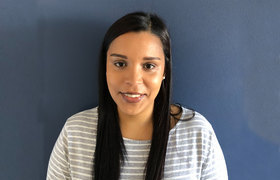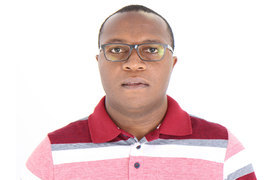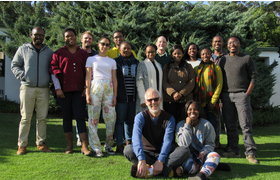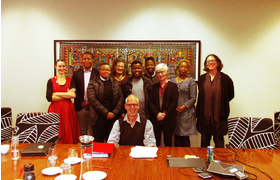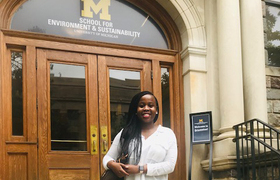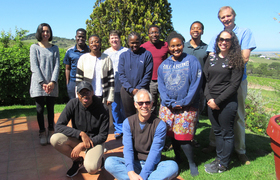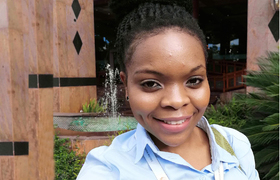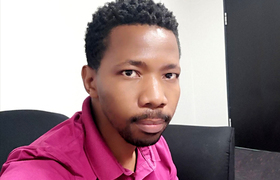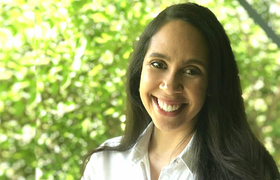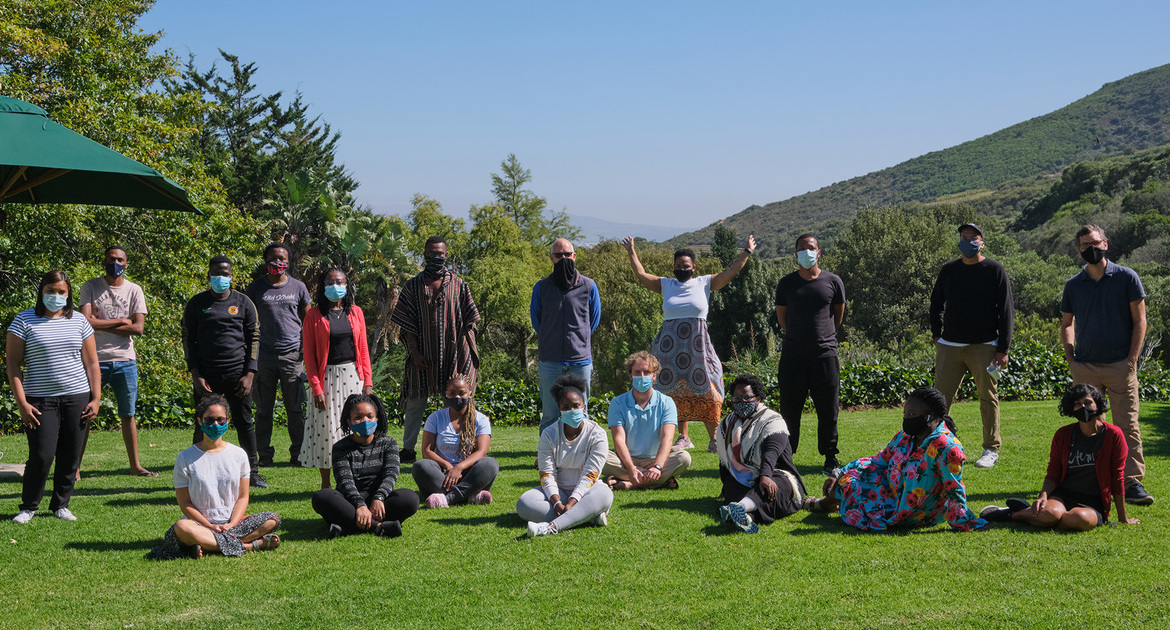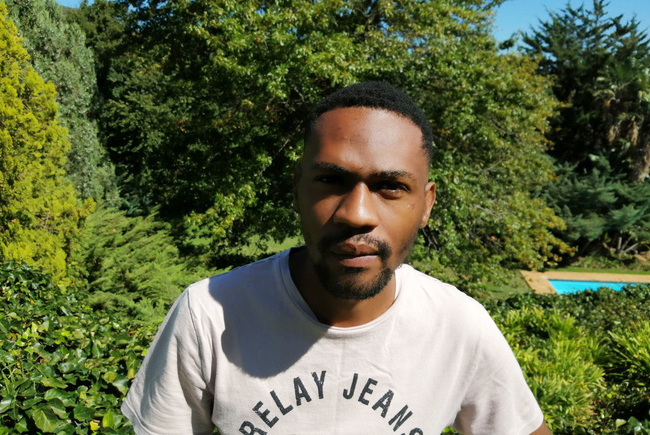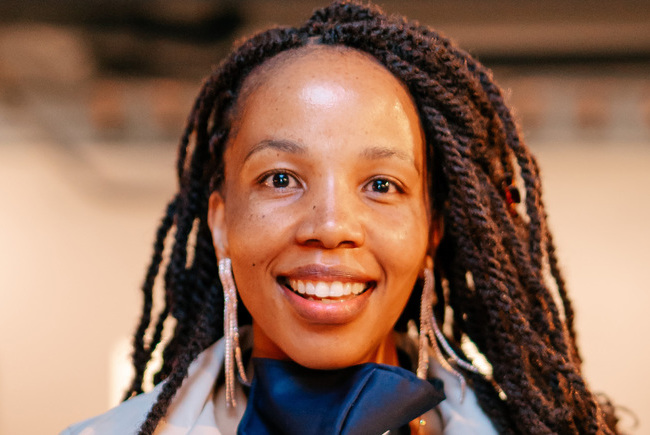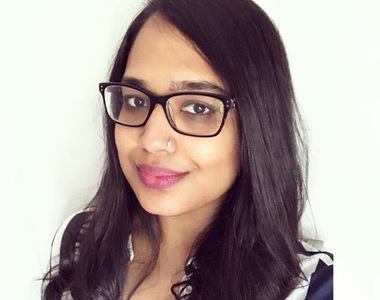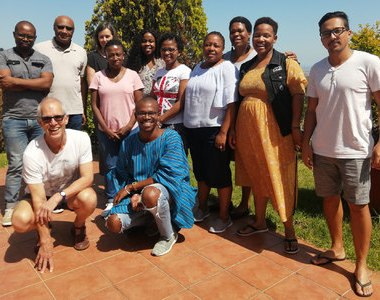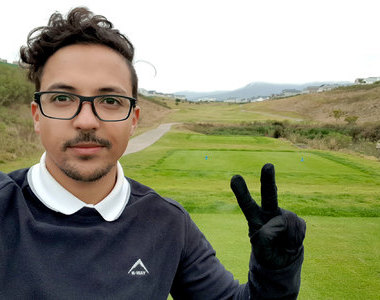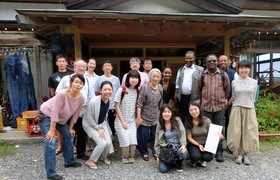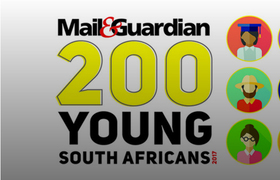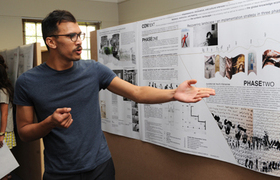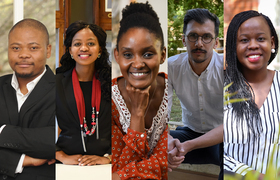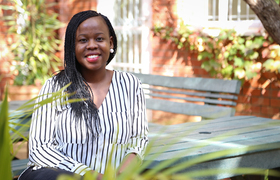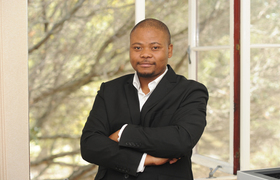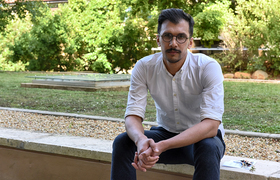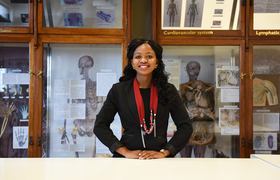Tendani Chimboza: new nGAP member
03 May 2021 | Story Robert Morrell. Photo Supplied. Read time 6 min.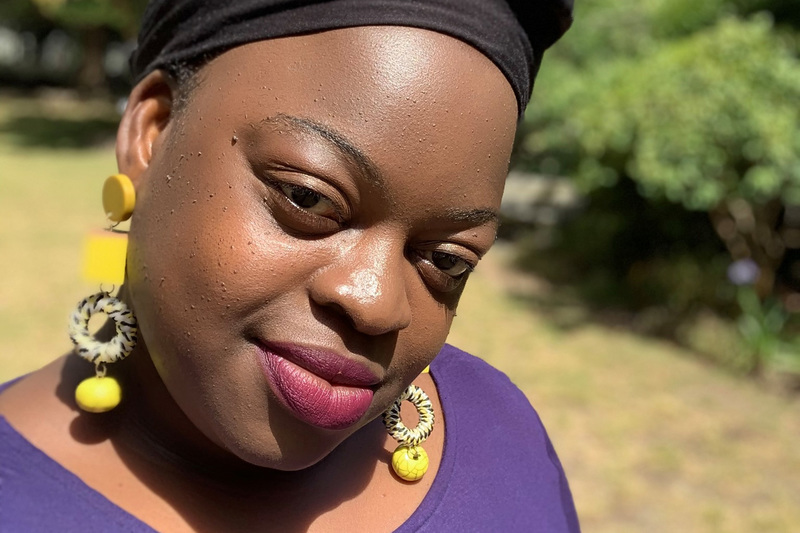
Tendani Chimboza was appointed as a lecturer in the Department of Information Systems in the Faculty of Commerce earlier this year. She was one of five lecturers appointed as part of Phase 6 of the New Generation of Academics Programme (nGAP), an initiative of the Department of Higher Education and Training.
Chimboza is studying towards a PhD in information systems (IS). In 2020 she was part of a team at the University of Cape Town (UCT) that launched a project called the Cybersecurity Capacity Centre for Southern Africa (C3SA). Hosted by UCT’s IS department, C3SA was established to assess national cybersecurity readiness and develop capacity to enable governments to combat cybercrimes. Through research, C3SA raises awareness about cybercrimes that affect ordinary South Africans, such as bank account scamming, identity theft and online child trafficking, to mention only a few.
Born in Venda
Chimboza was born in Tshakhuma, a village in Venda in the Limpopo province. Her mother is a retired civil worker, while her late father was an education inspector and plant farmer. She identifies the biggest highlight of her childhood as working on her family farm and selling plants in the family nursery. School holidays involved waking up at 05:00 to reap crops that were sold to Thohoyandou’s street vendors or joining the workers who sold plants in the surrounding villages.
“This experience taught me three values that I live by to this date: working hard, giving and honesty.”
“On weekends, I would drive around Thohoyandou suburbs with my father offering landscaping services. Through this family business, my parents taught me how to work hard, make a difference in my community, and constantly think of my legacy. This experience taught me three values that I live by to this date: working hard, giving and honesty.”
Chimboza completed both her primary and secondary schooling in her home village. After matric she attended the University of Fort Hare and completed a BSocSci in applied communication management. She then undertook postgraduate studies in language and communications at the University of the Western Cape (UWC). Chimboza was a Mellon Scholar for both her BA honours and MA and credits this programme with giving her the expertise and confidence to pursue an academic career.
Chimboza also belonged to the Golden Key International Honour Society and was selected at UWC for the dean’s academic performance list.
Coming to UCT
In 2017 Chimboza joined the UCT IS department as a PhD candidate. Her interest in an academic career was stimulated by becoming a teaching and research assistant in the department. Never one to twiddle her fingers, Chimboza also lectured the Communication Science, Media & Technology and Business Communications course at Varsity College. In 2020 Chimboza was appointed as a lecturing assistant at UCT, and she has now entered a permanent position as an nGAP lecturer.
Before joining UCT permanently, Chimboza worked in the ICT sector in corporate communications and transformation. Her early days in the communication industry acquainted her with internal brand management and IT market research. The latter influenced her decision to pursue a PhD in information systems with a focus on ICT policy compliance. Her topic investigates B-BBEE compliance in the ICT sector, bringing to light both governmental and sectoral factors that affect transformation.
Chimboza has already been active within the IS department in bringing about change. Between 2018 and 2020 she transformed the process of providing feedback to honours students, thereby contributing towards improving the quality of young researchers. She has also had teaching experience at undergraduate (Introduction to IS) and postgraduate levels (honours research) and energises her students with her passion for learning.
“Three of the young women I have mentored have graduated with computer science, geology and human resources degrees, respectively.”
During her spare time, she enjoys long drives with her husband, Nisbert, and their daughter, Tadiwa.
“I love big family events, especially when my siblings all drive to Cape Town for a weekend away in the Overberg area. Organising family events got me the title of CEO: Family Pleasure. Beyond work and family, I also feed my passion for developing young women in rural areas. Since 2013 I have been identifying girls from my former secondary school and assisting them with university applications, self-development and career guidance. Three of the young women I have mentored have graduated with computer science, geology and human resources degrees, respectively.”
Being part of nGAP
Chimboza commented on the career opportunity provided by nGAP:
“It provides a great avenue to pursue my research interests. In addition to ICT policy compliance behaviour, I also want to explore how ICTs have helped nations in achieving social justice. As global crises entrenched in prejudice, gender-based violence, political conflict, terrorism, cybercrimes and recently the COVID-19 pandemic increase, ICTs have proved to be effective in achieving social justice. From racism to gender-based violence to corruption, social media movements have made it possible to influence policy direction.
 This work is licensed under a Creative Commons Attribution-NoDerivatives 4.0 International License.
This work is licensed under a Creative Commons Attribution-NoDerivatives 4.0 International License.
Please view the republishing articles page for more information.
New Generation of Academics Programme (nGAP)
UCT has responded energetically to the New Generation of Academics Programme (nGAP), an opportunity provided by the Department of Higher Education (DHET) to build a new generation of black South African academics. The DHET’s 2015 vision document, “Staffing South Africa’s Universities Framework: A comprehensive, transformative approach to developing future generations of academics and building staff capacity”, proposes a suite of initiatives to address the challenge, with nGAP being the major instrument to increase the numbers of black South African academics.
The programme “involves the recruitment of highly capable scholars as new academics, against carefully designed and balanced equity considerations and in light of the disciplinary areas of greatest need”. The nGAP scholars are appointed into permanent positions where from the outset their conditions are customised to ensure their successful induction into the ranks of established academics.
The DHET provides funding over a six-year period to support the appointment of an nGAP lecturer, and their time is protected to provide the best possible opportunity for the completion of a doctorate degree in the shortest possible time. Once the degree is completed, the nGAP lecturer’s teaching commitments are steadily increased until they shoulder a full teaching load.
Since the first advertisement for nGAP posts in 2015, UCT has been awarded 17 nGAP positions: 5 (Phase 1), 4 (Phase 2), 3 (Phase 3) and 5 (Phase 4). These are distributed across all faculties.
UCT’s nGAP scholars operate as a single cohort, managed and coordinated by Dr Robert Morrell. Lecturers meet for quarterly meetings, writing retreats and various capacity-building activities all designed to support the completion of postgraduate qualifications (particularly doctorates) and to develop records of achievement that will testify to their emergence as self-standing, excellent academics. Each lecturer is mentored by a senior scholar, who provides support and guidance on the challenges that routinely face academics.
The nGAP manager sets great store in building the cohesion of the cohort and encouraging the establishment of new UCT networks while producing a collaborative, mutually supportive and embracing work culture.
According to Dr Morrell, “This group of academics will lead UCT in 15 to 20 years’ time ... Their vision of excellence, of being African and South African, of serving a wider community and producing knowledge for the planet, the continent and the country, will power UCT in years to come.”
Newsletters
In the news
